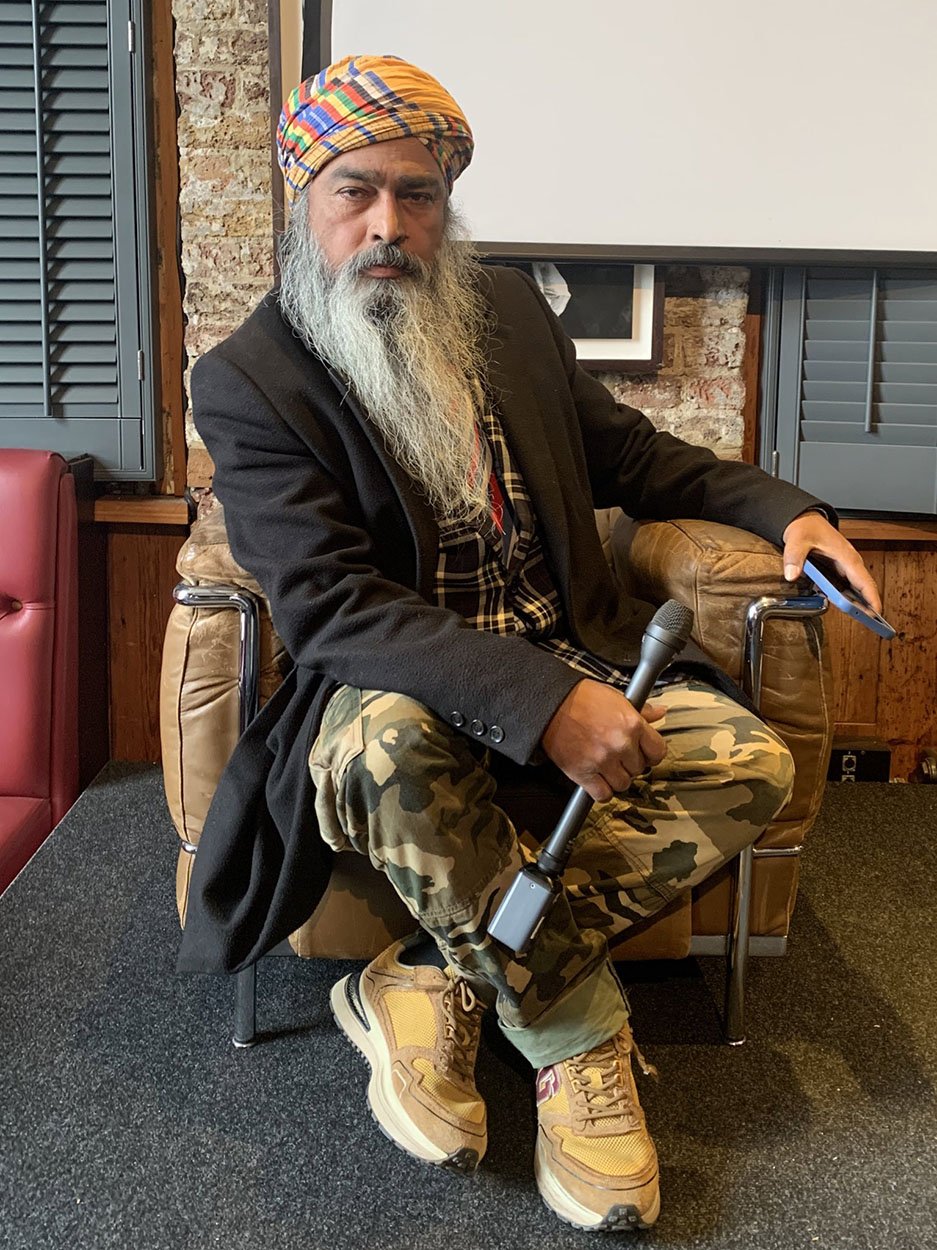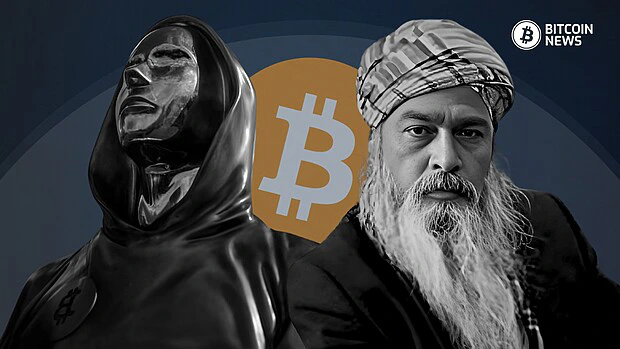In the world of digital currencies, few names hold as much intrigue as “Satoshi Nakamoto,” the elusive creator of Bitcoin. Over the years, various individuals have stepped forward, claiming to be Nakamoto, only to fail to convince an increasingly skeptical audience.
Recently, a new claimant, Stephen Mollah, joined the list of those vying for the title. His attempt, however, was met with widespread doubt.
The story began with an announcement getting published on Pressat earlier this week, stating:
“After over a decade of speculation and mystery, the world will finally learn the true identity of Satoshi Nakamoto, the elusive inventor of Bitcoin and the foundational blockchain technology. On this momentous occasion, Nakamoto will reveal his legal identity in a live press conference.”
The individual believed to be Satoshi Nakamoto reportedly stated, “The time has come for me to officially reveal my identity. I am facing significant legal challenges, and I believe the world deserves the truth.”
Held on October 31 at the Frontline Club in London—a date that coincides with the anniversary of the Bitcoin whitepaper’s release—Mollah’s press conference was supposed to be the grand unveiling of the mastermind behind Bitcoin.
However, as journalists gathered, it became clear that this would be another unconvincing attempt to claim the Nakamoto identity.

The press event quickly lost credibility. Although PR agency London Live promoted the conference, the Frontline Club was reportedly uninvolved, despite being the venue.
A club representative clarified to attendees that they had no affiliation with Mollah or the event organizers, leading at least one journalist to walk out before Mollah even took the stage.
BBC News cyber correspondent Joe Tidy attended and live-tweeted his experience, describing an atmosphere thick with skepticism as Mollah struggled to gain control of the audience’s trust.
“Been here nearly an hour and people are restless and increasingly rude,” Tidy tweeted, adding that Mollah’s “cheek was twitching rapidly as he stared down a skeptical crowd.”
He highlighted:
“I’m at a London event billed as the ‘unveiling of the true legal identity of Bitcoin inventor Satoshi Nakamoto’. An odd set up to the press conference as the organiser asked me to pay £500 to attend and appear on stage to ask questions of the billionaire mystery man.”
According to the Financial Times, the presentation led by Mollah and event organizer Charles Anderson began with a classic microphone check, “Testicles, one, two, three,” which did not lend more credibility to the atmosphere.
When Mollah finally addressed the audience, he made bold claims that went far beyond Bitcoin. He asserted that he had invented energy recovery systems for vehicles and even claimed credit for creating the popular British television show Britain’s Got Talent.
These statements were met with raised eyebrows, as Mollah failed to provide any substantial evidence to back up his claims.
Mollah attempted to demonstrate his identity as Satoshi Nakamoto, but technical issues reportedly prevented him from using his laptop. He presented what he called “screenshots from 2009” as proof of his connection to Bitcoin.
Tidy describes the screenshots as “easy to fake”, which to the seasoned attendees, were far from convincing.
When asked if he could move bitcoin from the Genesis block or provide any cryptographic proof, Mollah promised to deliver such evidence “in the next few months.” This was not the first time a Satoshi claimant has delayed proof, and it didn’t inspire confidence among the attendees.
The Bitcoin community places a high value on verifiable evidence, particularly when it comes to claims surrounding Nakamoto.
Mollah’s screenshots were quickly dismissed as easy-to-fake images that did little to prove his identity. His claim also appeared to lack any cryptographic signatures or blockchain evidence, which are generally seen as the minimum proof required to substantiate such a claim.
In fact, the world is wary of Satoshi Nakamoto claims, having seen similar stories play out over the years. Most notably, Craig Wright, an Australian scientist, has made repeated attempts to claim the title of Nakamoto.
Wright’s efforts led to a lawsuit, which he ultimately lost, with a UK court ruling that his evidence was insufficient to prove his claim.
As a result, Wright now faces a Worldwide Freezing Order (WFO), barring him from moving his assets until he pays nearly $2 million in legal fees to the Bitcoin podcast host Peter McCormack.
A spokesperson for BitMEX Research noted that Mollah also asserted that he invented the Twitter logo, Eurobond, and the “ChatGPT protocol” during the strange event. However, he allegedly failed to provide any evidence to support these claims.
The reactions to Mollah’s press conference were swift and critical. Journalists, Bitcoin enthusiasts, and even casual observers questioned the motivations behind Mollah’s claim.

Stephen Mollah’s press conference wasn’t just about his claim to the Nakamoto identity. It also served as a reminder of the challenges facing the Bitcoin industry as a whole.
False claims of Nakamoto’s identity draw unnecessary regulatory scrutiny to the Bitcoin industry, a concern for fintech startups striving to gain legitimacy in a world where trust is paramount.
These high-profile, unproven claims create an air of mystery that can overshadow the industry’s legitimate achievements and innovations.
It’s worth mentioning that Stephen Mollah, the self-proclaimed Bitcoin creator, and his partner Charles Anderson are embroiled in a legal battle stemming from allegations of fraud related to Mollah’s claim of being Satoshi Nakamoto and owning 165,000 BTC, which could be worth billions.
The pair faces a private prosecution by alleged victim Dalmit Dohil, accusing them of dishonestly asserting Mollah’s identity and bitcoin ownership, thereby exposing Dohil to potential financial loss.
Both men have pleaded not guilty to fraud charges and were granted bail, with their trial scheduled for November 3, 2025.
As the mystery surrounding Bitcoin’s creator remains unsolved, the community seems more resolved than ever to maintain its principles of transparency, decentralization, and trustlessness.
Although Satoshi Nakamoto’s identity would likely be of historical significance, most agree that it has no bearing on the technology’s future.
As Joe Tidy summed up in his live updates, Mollah’s attempt was “another swing and a miss” in the long line of failed Satoshi claims.
In the end, although Bitcoin’s creator will always be admired for his genius and outstanding achievement, but the foundation of Bitcoin rests on the strength of its decentralized network, not the identity of its creator.
Despite Mollah’s dramatic attempt, the Bitcoin community remains unshaken, continuing its journey with the same skepticism and resilience that have defined it from the start.










